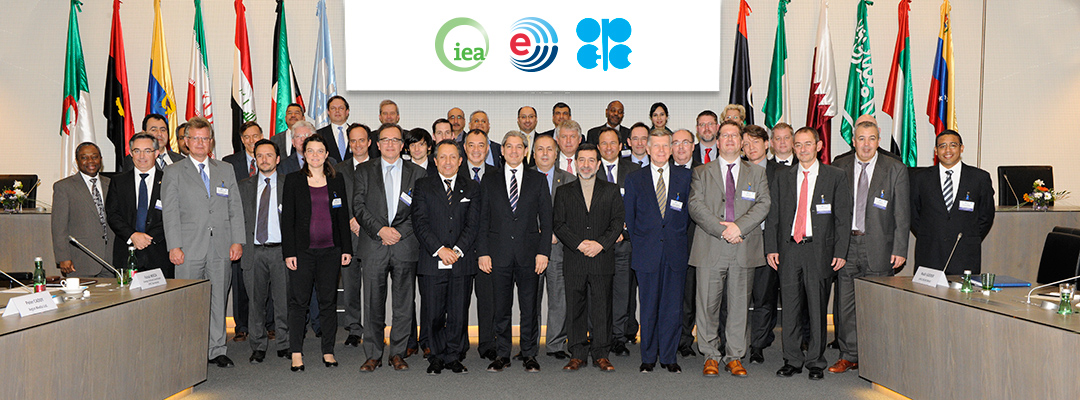IEA-IEF-OPEC Technical Meeting on linkages between Physical and Financial Energy Markets
Vienna, Austria
The Secretary General of the International Energy Forum, Dr Aldo Flores-Quiroga participated in the Joint IEA-IEF-OPEC Technical Meeting on the linkages between Physical and Financial Energy Markets (OPEC, Vienna, 30 March 2015). The meeting, a feature of the trilateral IEA-IEF-OPEC programme of work, is part of an ongoing series aimed at helping to determine the causes and consequences of high energy market volatility and to identify remedies.
Current market turbulence has again sharpened focus on the interactions between physical and financial energy markets and their contribution to energy market volatility. The 2010 Cancún Ministerial Declaration called on the IEF (including major producers outside OPEC and major consumers outside IEA) to cooperate in a trilateral work programme with IEA and OPEC to promote confidence among producers and consumers and send strong market signals to help stabilise long-term expectations. Following the oil market turbulence of 2008, four joint IEA-IEF-OPEC workshops on physical and financial interactions took place in a period of relative oil price stability. New demand and supply trends, brought about by investments in conventional and new energy technologies as well as the implementation of new energy policy and regulatory initiatives have reshaped energy markets, affecting physical - financial energy market interactions and their role in energy market turbulence.
The Technical Meeting gathered senior level representatives from physical and financial energy market stakeholders, alongside experts from price reporting agencies, regulatory institutions, advisories and academia.
Session One focused on patterns in oil market volatility and how the shift from low volatility of the past years to higher volatility today may change future price dynamics and interactions between physical and financial energy markets.
Session Two focused on the impact of present day oil price volatility on investment and debt servicing obligations of energy companies and their access to financing.
Session Three dealt with data availability for futures and swaps and focused on the challenges regarding classification, transparency, oversight and the overall evolution of standards to help make risks and opportunities more transparent.
Session Four concluded the meeting by addressing developments in financial market regulation including benchmarks in respect of EU, US and other initiatives as well as the joint IEA-IEF-OPEC survey assessment on the market impact of the IOSCO Principles for Oil Price Reporting Agencies carried out on behalf of the G20.
Presentations
- David Fyfe, Head Market Research and Analysis, Gunvor Group
- Paul Horsnell, Head of Commodity Research, Standard Chartered Bank
- Marco Lombardi et al, Bank for International Settlements
- Mark Pengelly, Editor, EnergyRisk
Related Reading
Oil and Debt, by Dietrich Domanski, Jonathan Kearns, Marco Jacopo Lombardi and Hyun Song Shin






